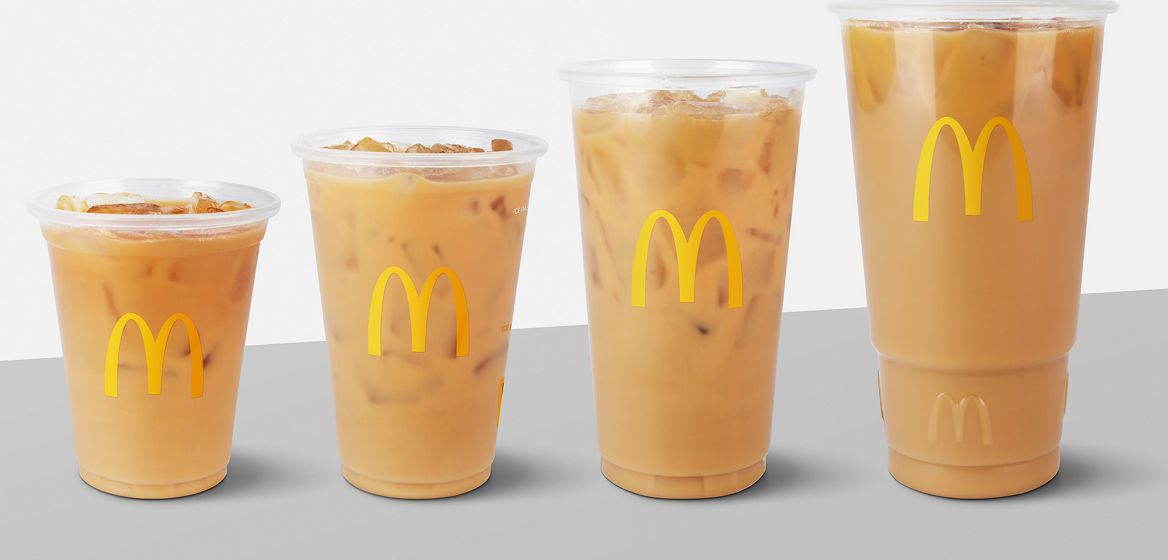McDonald’s Tests Circular Clear Cups Sourced From Recycled and Biobased Materials, Including Used Cooking Oil
March 22, 2022
McDonald’s is home to plenty of iconic duos.
Is the Big Mac really complete without our World Famous Fries? And is it just us, or does the Egg McMuffin somehow taste even better when it’s paired with Hash Browns?
Now, we’re testing a new power couple that has the potential to move McDonald’s beyond virgin fossil fuel-based plastics.
Say hello to our circular clear cups sourced from equal parts recycled and biobased materials1 – available now in 28 select restaurants in Savannah, Georgia. When we say “circular,” we’re referring to the cup’s potential lifespan. You see, these cups are sourced from recycled material, and our goal is that they can be recycled to create more material that could be used to make other items 2. It’s a way of doing things that can help keep plastic in use and out of landfills.
But don’t worry, the cups will look and feel the same.
Before we geek out about the nitty-gritty details, it’s worth noting that these new circular clear cups are made with the intention of being nearly identical to the McDonald’s cups you’re used to. In fact, you probably won’t notice any difference between the two – but behind the scenes, there’s plenty to get excited about.
It’s what’s on the inside that counts.
The test cups are sourced from a 50-50 mix of post-consumer plastic material and biobased materials. We're using what is referred to as a mass balance method, a process that allows us to measure and track recycled and biobased inputs being used in a process that also mixes traditional fossil-fuel sources. Cooler still is the fact that the biobased material is crafted in part from McDonald’s used cooking oil. Talk about a full-circle moment.
This test is one of many steps that will help McDonald’s meet its goal of sourcing 100% of guest packaging from renewable, recycled or certified sources by 2025. Additionally, McDonald’s is working hard to increase the accessibility of this material nationwide.
Kind of a big deal
We know that plastic packaging can provide the food safety and performance our customers expect from their McDonald’s experience, but we also believe that plastic pollution is an issue we all need to help address.
Ultimately, this test signals to the industry that McDonald’s – one of the world’s largest restaurant companies – is serious about supporting the production of biobased and recycled materials.
What now?
After you’ve quenched your thirst and brushed up on all things circular economy, you might be wondering how to dispose of your clear cup. We’re glad you asked, because you’re a very important part of the process.
Luckily for all of us, it’s simple: In Savannah, just rinse and recycle the cup after use at home or in any recycling bin. Look at you doing your part!
A team effort
We know that sustainable sourcing solutions are a team effort – and this test is no exception. Our friends at TMS-HAVI helped organize this effort from the very beginning by engaging with industry leaders Pactiv Evergreen, Neste, INEOS and LyondellBasell. Each partner provided a piece of the puzzle that made this test possible.
You deserve some credit, too. By recycling plastics like our clear cups, you’re helping to create more recycled materials that can be used again and again and again.
1 Biobased materials are materials made from biomass, such as plants.
2 Lids and straws cannot be recycled; please check with your local recycling program to find out what’s accepted in your area.

